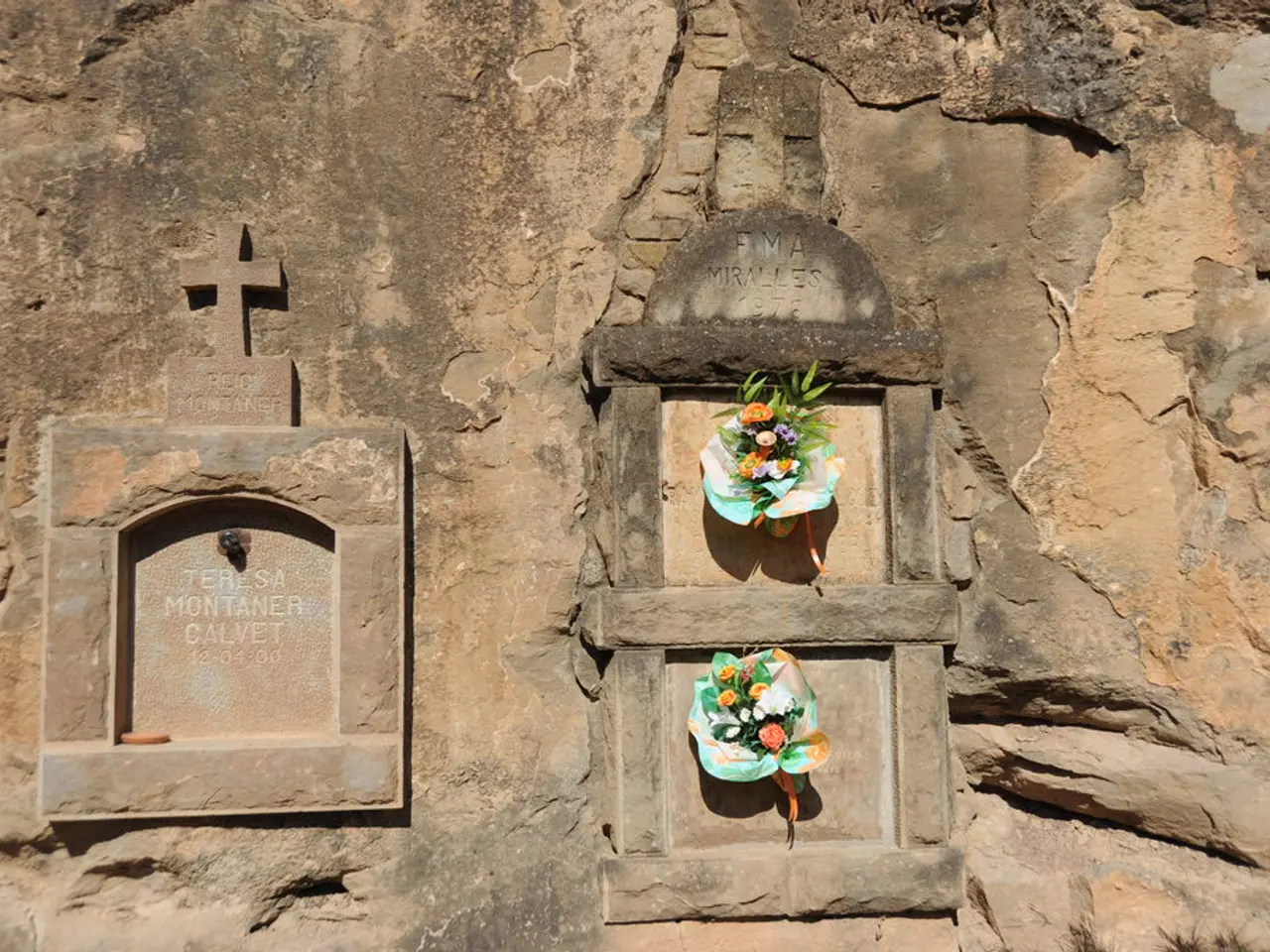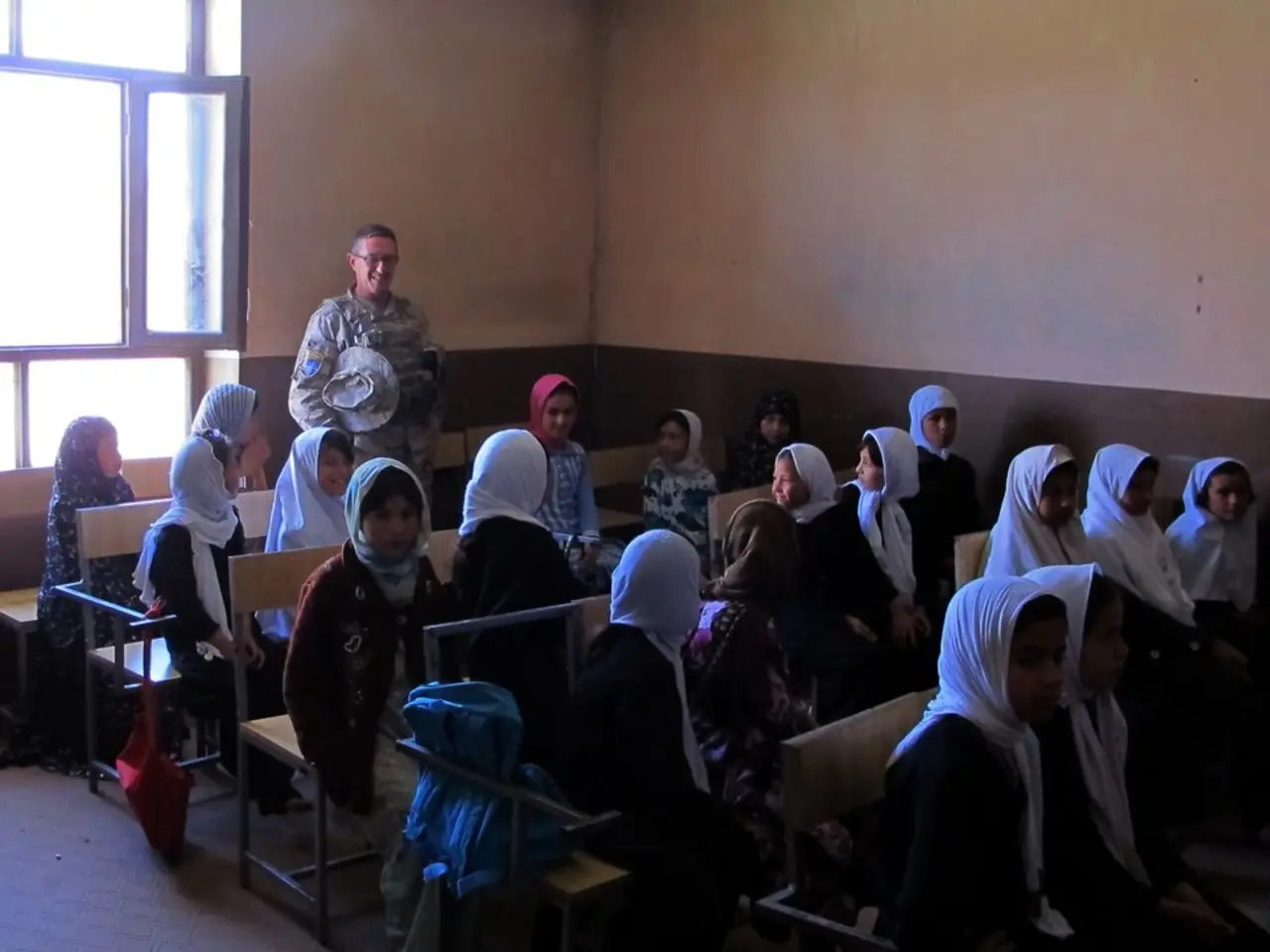Ziemiak applauds the collapse of Brandt in Poland-Poland reconciliation
Article Title: CDU Secretary Emphasizes Importance of Memorial for Polish Victims of World War II in Berlin
In a recent statement, CDU general secretary Paul Ziemiak highlighted the significance of creating a memorial for the Polish victims of German occupation during World War II in Berlin. This memorial, according to Ziemiak, would not only serve as a testament to the shared history between Poland and Germany but also as a fulfillment of the German-Polish friendship.
The decision to construct this memorial was made by the Bundestag in November. This decision follows in the footsteps of Willy Brandt, the former Chancellor of West Germany, who made a historic gesture of humility in 1970 when he knelt before the Warsaw Ghetto Memorial. Brandt's kneeling, a powerful symbol of contrition and apology for the atrocities committed by Nazi Germany, played a crucial role in the reconciliation between Germany and Poland.
Brandt's emotional gesture marked a pivotal moment in German-Polish relations. It helped to break decades of silence and hostility between the two nations by acknowledging German guilt and paving the way for normalization of diplomatic relations. This was formalized in the 1970 Treaty of Warsaw, which saw West Germany recognise the postwar borders and renounce any territorial claims.
Ziemiak emphasized that the shared history between Poland and Germany is a mandate for future generations to shape the European future together and to fill the German-Polish friendship with life. He believes that the proposed memorial will promote important dialogue about the common European future of Poland and Germany.
However, no new information about the design, location, funding, or expected impact of the memorial was provided. The anniversary of Brandt's kneeling falls on December 7, but no specific plans for commemoration were mentioned.
Regardless, Ziemiak's statement underscores the importance of remembering and learning from the past as a means to build a better future. The proposed memorial is expected to serve as a lasting symbol of reconciliation and a reminder of the shared responsibility to shape a peaceful and prosperous Europe.
[References] [1] The Treaty of Warsaw (1970) - Wikipedia. (n.d.). Retrieved July 18, 2023, from https://en.wikipedia.org/wiki/Treaty_of_Warsaw_(1970) [2] Willy Brandt's Kneeling in Warsaw. (n.d.). Retrieved July 18, 2023, from https://www.ushmm.org/information/exhibitions/online-exhibitions/special-focus/willy-brandts-kneeling-in-warsaw [3] The German-Polish Friendship. (n.d.). Retrieved July 18, 2023, from https://www.deutsch-polnische-freundschaft.de/ [4] Brandt's Kneeling in Warsaw. (n.d.). Retrieved July 18, 2023, from https://www.britannica.com/topic/Brandt-Kniefall [5] The Berlin Memorial for Polish Victims of World War II. (n.d.). Retrieved July 18, 2023, from https://www.polandin.pl/en/news/berlin-memorial-for-polish-victims-of-world-war-ii-planned-for-construction-in-berlin/
- The construction of the memorial for Polish victims of World War II in Berlin is not only about honoring the past, but also a part of the ongoing politics and policy-and-legislation surrounding war-and-conflicts, as it reflects the German-Polish friendship and the shared responsibility of shaping a peaceful and prosperous Europe.
- In the world of general-news, the decision to build this memorial, reminiscent of Willy Brandt's emotional gesture, falls under the broader category of international relations and diplomacy, including other examples of war-and-conflicts resolution and policy-and-legislation initiatives.






